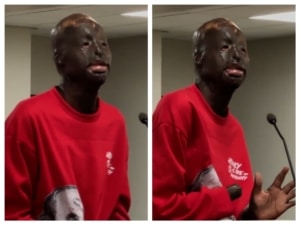An appeals court in New York has struck down the massive financial penalty imposed on President Donald Trump in the state’s civil fraud case, a ruling that spares him from paying more than half a billion dollars. The decision, delivered Thursday by a five-judge panel in the Appellate Division, came seven months after Trump’s return to the White House.
The panel concluded that Judge Arthur Engoron’s order, which ballooned to over $515 million with interest, was excessive and unconstitutional. “While the injunctive relief ordered by the court is well crafted to curb defendants’ business culture, the court’s disgorgement order, which directs that defendants pay nearly half a billion dollars to the State of New York, is an excessive fine that violates the Eighth Amendment of the United States Constitution,” Judges Dianne T. Renwick and Peter H. Moulton wrote in one of the opinions.
Engoron had initially ruled in 2023 that Trump deliberately inflated his wealth in financial statements sent to banks and insurers, ordering a $355 million penalty. With interest, the figure swelled beyond $515 million. Additional fines on Trump’s sons, Eric and Donald Jr., and other Trump Organization executives pushed the total above $527 million.
READ ALSO: Trump wields presidential power to tilt 2026 midterms in GOP’s favor
Alongside the monetary penalty, Engoron banned Trump and his two eldest sons from holding leadership positions in New York corporations for several years. Those restrictions, like the fine, were on hold while Trump appealed. He secured a $175 million bond to delay payment, AP reported.
Watch a recent episode of The BreakDown podcast below and subscribe to our channel PanaGenius TV for latest episodes.
The appeals court dismissed the financial penalty outright, though it left the door open for further litigation before the state’s highest court. It took the judges nearly 11 months after oral arguments to render a decision, unusually long for such cases, which are often resolved within weeks or months.
Attorney General Letitia James, who brought the case, has repeatedly described Trump’s conduct as “lying, cheating, and staggering fraud.” Her office did not immediately respond to the ruling. Trump has consistently denied wrongdoing, declaring during the trial that he was “an innocent man” and describing the lawsuit as “a fraud on me.”
The case became a political flashpoint, with Trump casting James and Engoron, both Democrats, as partisan actors. His Justice Department has subpoenaed James for records tied to the lawsuit, probing whether she violated the president’s civil rights. James’ attorney, Abbe D. Lowell, countered that investigating the fraud case is “the most blatant and desperate example of this administration carrying out the president’s political retribution campaign.”
Trump’s defense maintained that his financial statements contained disclaimers and were never meant to mislead, emphasizing that lenders and insurers did their own assessments and were fully repaid. He also insisted the valuations understated, rather than exaggerated, his fortune, despite evidence such as tripling the size of his Trump Tower penthouse.
Prosecutors argued that the false numbers distorted lending decisions, granting Trump favorable terms unavailable to honest borrowers. They contend the verdict was grounded in substantial evidence and proportional to Trump’s financial gains.
The fraud case is one of several legal battles shadowing Trump’s second presidency. In January, he was convicted in the hush money case but received an unconditional discharge, sparing him jail or fines while leaving the conviction intact. He is appealing.
READ ALSO: Rubio praises Trump as ‘only leader in the world’ capable of brokering Ukraine peace deal
Separately, a federal appeals court last year upheld a jury’s finding that Trump sexually abused writer E. Jean Carroll and later defamed her, affirming a $5 million judgment. He also faces an additional $83.3 million defamation verdict, which he is appealing.










